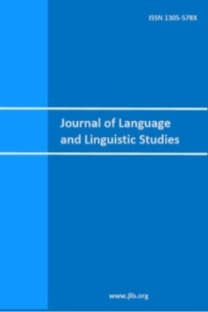Türkiye‟de Kültür ve Kültür Öğrenimine Karşı Öğretmen ve Öğrenci Tutumları
İngiliz dili eğitimi alanında dil ve kültür arasındaki inkâr edilemez ilişki birçok açıdan her daim ilgi odağı
olmuştur. Toplumbilimciler, insanbilimciler ve tabi ki uygulamalı dilbilimciler hedef dil kültürel ögelerinin diğer
çelişkili dilbilimsel sistemlerde olduğu gibi dil öğrenimine yardımcı mı yoksa engel mi olduğunu anlamaya
çalışmışlardır. Bu nedenle, bu çalışmanın amacı öğretmenlerin ve İngilizceyi yabancı dil olarak öğrenenlerin
“kültür” hakkındaki düşüncelerini, kültür öğretimine karşı tutumlarını, öğretmek veya öğrenmek istedikleri
kültürel başlıkları, kültür öğretimi/öğrenimine ayrılacak zamanı ve son olarak kültürler arası iletişim yetisi
hakkındaki görüşlerini incelemektedir. Veri hedef dilin öğreniminde kültürel ögelerin önemini belirlemek için
Türk İngilizce öğretmenlerine ve Türk üniversite öğrencilerine cevaplamaları amacı ile verilen Likert tipi anket
ile toplanmıştır. Analiz edilen veriler kültür öğretimi algısını çalışmaya katılan deneklerden elde edilen sağlam
deliller ışığında değiştirecek cesaret verici sonuçlar sunmaktadır.
Teachers’ and Learners’ Attitudes towards Culture and Culture Learning in a Turkish Context
In the field of ELT, the undeniable relationship between language and culture has always been a focus of attention from a variety of perspectives. Sociologists, anthropologists and naturally applied linguists have tried to understand whether cultural aspects of L2 scaffold or interfere in much the way where other types of contrasting linguistic systems do. Therefore, the aim of this study is to investigate teachers’ and EFL learners’ perspectives on understanding of ‘culture’; attitudes towards culture teaching; the cultural topics they favour to teach/learn in the classroom; time allocation to culture teaching/learning and finally their attitudes towards intercultural communicative competence. The data were collected through a Likert type questionnaire in which Turkish teachers of English and Turkish university students were asked questions to respond with the purpose of finding the importance of cultural aspects in learning the target language. The analysed results show encouraging signs for changing the perception of cultural teaching by some sound evidence provided by the participants of the study.
